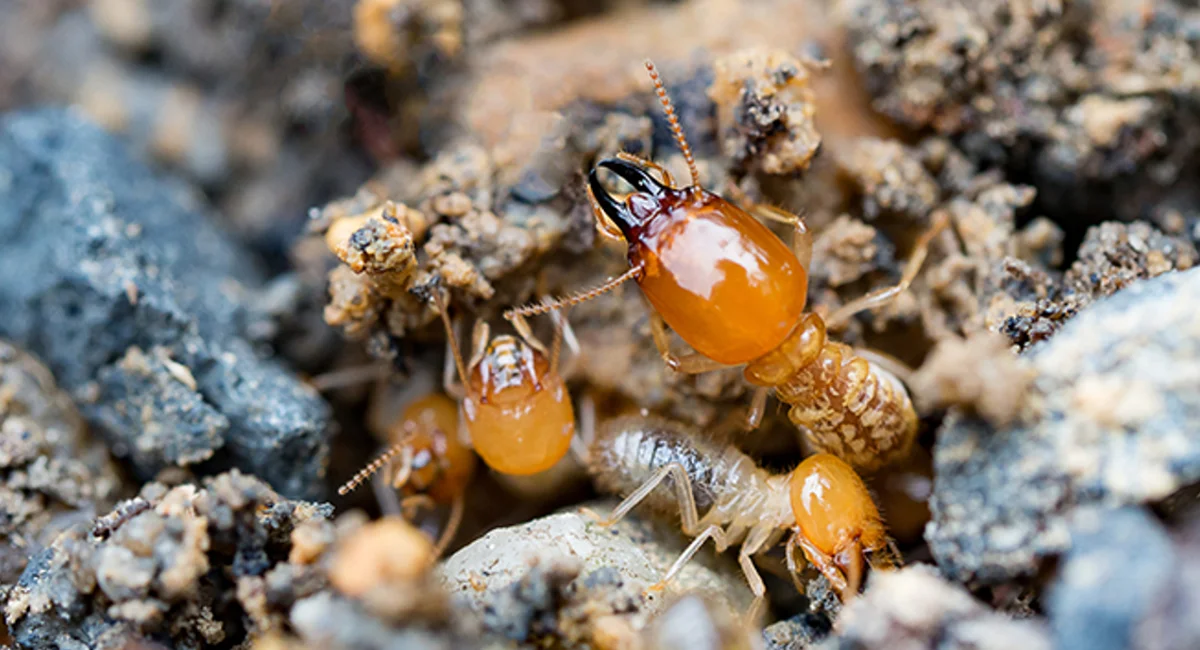Expert Termite Control Services: Guard Your Home from Termite Damage
Expert Termite Control Services: Guard Your Home from Termite Damage
Blog Article
Environmental Influence of Insect Control: Balancing Efficiency With Sustainability
The ecological influence of insect control is a critical problem that calls for a delicate balance in between accomplishing performance in ensuring and managing insects sustainability of our ecological communities. From the usage of hazardous chemicals that permeate into our dirt and water to the unintentional effects on non-target types, the consequences of traditional parasite control techniques are significant.
Hazardous Chemicals in Parasite Control
The application of unsafe chemicals in parasite control positions substantial ecological and wellness dangers that call for mindful factor to consider and mitigation approaches. Chemicals, herbicides, and insecticides are frequently utilized to eradicate insects, however their extensive application can cause unintentional consequences. These chemicals can contaminate dirt, water resources, and the air, influencing not just the targeted insects however likewise helpful insects, wild animals, and humans.

To resolve these risks, incorporated pest monitoring (IPM) methods are being advertised as a more sustainable alternative. IPM involves a combination of approaches such as biological control, environment adjustment, and the targeted use chemicals as a last hope (ant control huntersville nc). By taking on a holistic approach to pest control, we can minimize the environmental and health and wellness effects related to dangerous chemicals while efficiently managing pest populations
Influence On Non-Target Types
Considering the unintentional repercussions of parasite control techniques, the effect on non-target varieties is a crucial element that needs thorough examination. While bug control measures aim to target particular bugs, various other microorganisms in the environment may be unintentionally affected. Non-target types, including advantageous bugs, birds, creatures, and even plants, can endure straight or indirect injury from chemical applications or biological control techniques.
Chemicals can have lethal or sub-lethal impacts on non-target varieties. Insecticides made to battle a particular bug bug might hurt pollinators like or natural killers such as ladybugs. Additionally, chemical residues can accumulate in the environment, impacting non-target microorganisms in time. In a similar way, organic control representatives, otherwise species-specific, can position threats to unexpected targets, interrupting the eco-friendly balance.
To reduce the effect on non-target types, incorporated pest monitoring (IPM) techniques that highlight an alternative strategy to pest control are suggested. These methods prioritize making use of environmentally friendly practices, reducing injury to advantageous microorganisms while successfully handling pest populations. Conducting detailed threat analyses and keeping track of the end results of pest control initiatives are crucial action in guarding non-target types and advertising general ecological community health and wellness.
Dirt and Water Contamination
Unintended environmental consequences of insect control methods expand beyond affecting non-target varieties, with substantial effects for soil and water contamination - ant control. Pesticides, herbicides, and chemical plant foods utilized in pest control can seep right into the dirt and contaminate groundwater, presenting a risk to both marine and terrestrial environments.
Water contamination is an additional crucial problem associated with pest control methods. To mitigate dirt and water contamination from insect control activities, incorporated parasite administration methods that prioritize sustainability and decrease chemical inputs are critical.
Air Air Pollution From Pesticide Use
Direct exposure to air-borne pesticides during agricultural applications postures a substantial problem for air pollution control measures. When chemicals are splashed onto plants, they can volatilize into the air and kind volatile organic compounds (VOCs) and various other airborne pollutants. These chemicals can add to the development of ground-level ozone, a major component of smog that can have damaging impacts on human health, crop productivity, and overall air top quality. Additionally, pesticide drift, where chemicals are lugged by the wind to unintended locations, can cause the contamination of close-by ecological communities and water bodies.

Strategies for Lasting Parasite Control
In the realm of farming techniques, carrying out lasting insect control strategies is extremely important for maintaining eco-friendly equilibrium and securing crop returns. Sustainable bug control emphasizes the usage of eco-friendly approaches to manage parasite populaces successfully while lessening damage to non-target microorganisms and communities. Integrated Bug Administration (IPM) is a widely embraced method that incorporates biological, cultural, physical, and chemical control methods to achieve lasting parasite administration options.
Crop turning and diversity are additionally efficient methods to disrupt pest life cycles and create much less beneficial conditions for insects to flourish. Ultimately, by incorporating these sustainable bug control strategies, farmers can accomplish an equilibrium in between pest management efficiency and ecological stewardship.
Conclusion
To conclude, the environmental impact of parasite control methods need to be thoroughly taken into consideration to balance effectiveness with sustainability. Dangerous chemicals made use of in parasite control can bring about dirt and water contamination, air pollution, and harm non-target species - termite control. It is crucial to implement sustainable bug control approaches to minimize these adverse effects on the setting and advertise a healthier environment for future generations
By taking on an alternative method to pest control, we can reduce the environmental and wellness influences linked with hazardous chemicals while effectively handling pest populations.

To reduce the air contamination caused by chemical usage, it is important to adopt incorporated insect monitoring approaches that prioritize the use of non-chemical insect control approaches, such as plant turning, all-natural predators, and resistant plant ranges. Sustainable parasite control emphasizes the use of eco friendly approaches to take care of parasite populaces effectively while decreasing damage to non-target microorganisms and ecosystems. Integrated Insect Administration (IPM) is a widely embraced technique that combines biological, cultural, physical, and chemical control methods to achieve long-term insect administration options.
Report this page